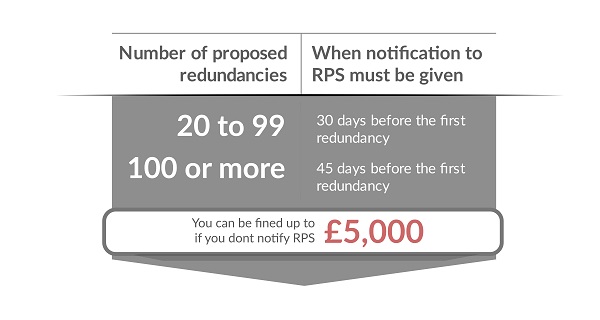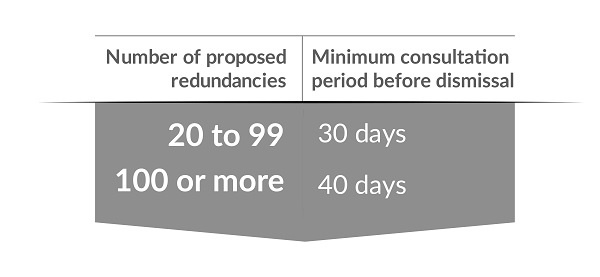Legal Considerations When Relocating A Business
Dec 22 2015
Darren Best

When relocating a business, there are a lot of important considerations to juggle. Directing a business move can be one of the most stressful undertakings in a managing director’s life, as it is vital to get everything right the first time, as mistakes can be monumental and costly. Therefore, you may require the assistance of commercial estate agents in London.
Here at Savoy Stewart, our representatives are here to help make your move as smooth and efficient as possible. When relocating your business, there are many things you must take into account to prevent any problems occurring later on down the line. If you require any professional advice or guidance, please do not hesitate to get in touch!
Image: Credit to Africa Studio / shutterstock.com
What must you consider when relocating a business?
Giving notice to staff
If members of your staff do not wish to relocate to the new office, or the move means that their job no longer exists; employers, by law, must offer redundancy. The amount of money offered will depend on factors such as the length of the employee’s service.
It is important to consider how many members of staff would likely be affected by the move; subsequent to the dismissal of staff, your company may find that it is short-staffed and is unable to function effectively, meaning your business performance may drop. If too many core members are dismissed, your business itself may be jeopardised. The training of new staff involves time, money are resources.
Furthermore, as stated on Gov.uk, employers are required by law that if more than 20 or more employees are made redundant within any 90-day period at a single establishment, the employer must follow ‘collective consultation’ rules and inform the Secretary of State.
-
Notification
The deadline for notifying the Redundant Protective System (RPS) depends on the number of proposed redundancies when relocating a business. If you don’t do this correctly, you can be fined up to £5,000!

-
Consultation
There’s no time limit on how long consultations can last, but there is a certain time period before you can dismiss any employees, which depends on the size of your company.

Office safety checks
-
Fire
It is important that employers carry out a fire risk assessment when relocating a business to the new premises. Your local fire station can aid you in working out an effective evacuation plan and help to identify potential risks within the building. They will also check that all of your alarms are in good working order.
Your team should be retrained in the new fire safety procedure. It is also advisable that your staff perform a fire drill and are given new fire safety information soon after moving to the new office location.
-
Lockdown procedures
For D1 properties (now referred to as use class F1, as well as some elements of use class E - read more about the new use class changes here), it is essential that you review your lockdown procedure in case of a potential threat. As noted by the Central Bedfordshire Council, such threats may include:
- A reported incident / civil disturbance in the local community (with the potential to pose a risk to staff and pupils in the school)
- An intruder on the school site (with the potential to pose a risk to staff and pupils)
- A warning being received regarding a risk locally, of air pollution (smoke plume, gas cloud etc.)
- A major fire in the vicinity of the school
- The close proximity of a dangerous dog roaming loose
-
Moving in hazards
One of the most common office dangers is that of clutter when moving in. Often, boxes are inefficiently stacked and can fall, wires cause workers to trip and sustain injuries and sharp implements are not used or unpacked cautiously. A simple but nevertheless important consideration is that clutter is removed from where it could pose as a potential threat.
Image: Credit to Ivonne Wierink / shutterstock.com
-
Employee documentation
When moving premises, it is important that files on both current and former employees are handled carefully – even more so with GDPR coming into effect. To avoid loss of personal details and other private information, you should consider a filing system and make provisions for its transportation so that the documents do not fall into the hands of those who are not permitted access to it.
-
Insurance
It is important that you take out insurance for when relocating a business, as goods may be damaged in transit, there could also be unscheduled delays which can halt production or disrupt business activity – not to mention a whole host of unforeseeable events.
It is a good idea to review your existing business insurance when you move. As stated by the Association of British Insurers, “By law, your insurance must cover at least £5 million but, in practice, most policies offer at least £10 million. You can be fined up to £2,500 for each day that you do not have appropriate insurance.” It is therefore crucial that your business is covered by a reputable insurer and for all the individual facets, such as motor insurance if your company uses company vehicles.
-
Licenses
Depending on what type of sector your company is concerned with, you will need to apply for the relevant license that permits you to undertake certain activities. For example, schools must apply for licences concerned with the use of educational materials such as printing music, extracts from books and newspapers, the use of television and radio etc.

Image: Credit to wutzkohphoto / shutterstock.com
-
Environmental factors
UK businesses have to comply with environmental regulations which protect not only the welfare of the surrounding habitats, countryside and wildlife, but also that of the employees. Some of the aspects considered are listed by Healthy Working Lives as:
- Insulation and ventilation
- Cleanliness of waste products
- Recycling practises
- Temperature in indoor workplaces
- The optimisation of natural light
- Drinking water
- Maintenance of the workplace, equipment, devices and systems
- Condition of floors and traffic routes
- Falls or falling objects
- Windows, skylights and ventilators & the ability to clean windows, etc. safely
- Doors and gates
- Escalators and moving walkways
Building Checks
-
Disability access
For D1 buildings (now referred to as use class F1, as well as some elements of use class E), the premises are required by law to make provision for those with a disability. As stated by the NHBC (National House Building Council), important check-points include:
- Providing disabled car parking spaces
- Including ramps for entering and existing the premises
- Ensuring the width of doorways are wide enough for wheelchair users
- Provision of disabled toilets (unisex is advised in case a carer is not of the same gender to the person requiring assistance).
- Visible signs
- Door handles at an accessible height
- Make sure that staff know how to aid the disabled in case of fire or emergency
-
Schools and nurseries
By law, it is required that certain guidelines are adhered to concerning school washrooms. For example, staff and pupil toilets MUST be kept separate, there must be one toilet to every ten pupils under the age of five, and one toilet to every twenty pupils over the age of five. It is also advisable to install smaller wash basins and toilets for young children. Toilet doors must open outwardly, and appropriate disabled fixtures should be installed. Finally, if your premises are a secondary school, you must provide showers in the Physical Education department.

